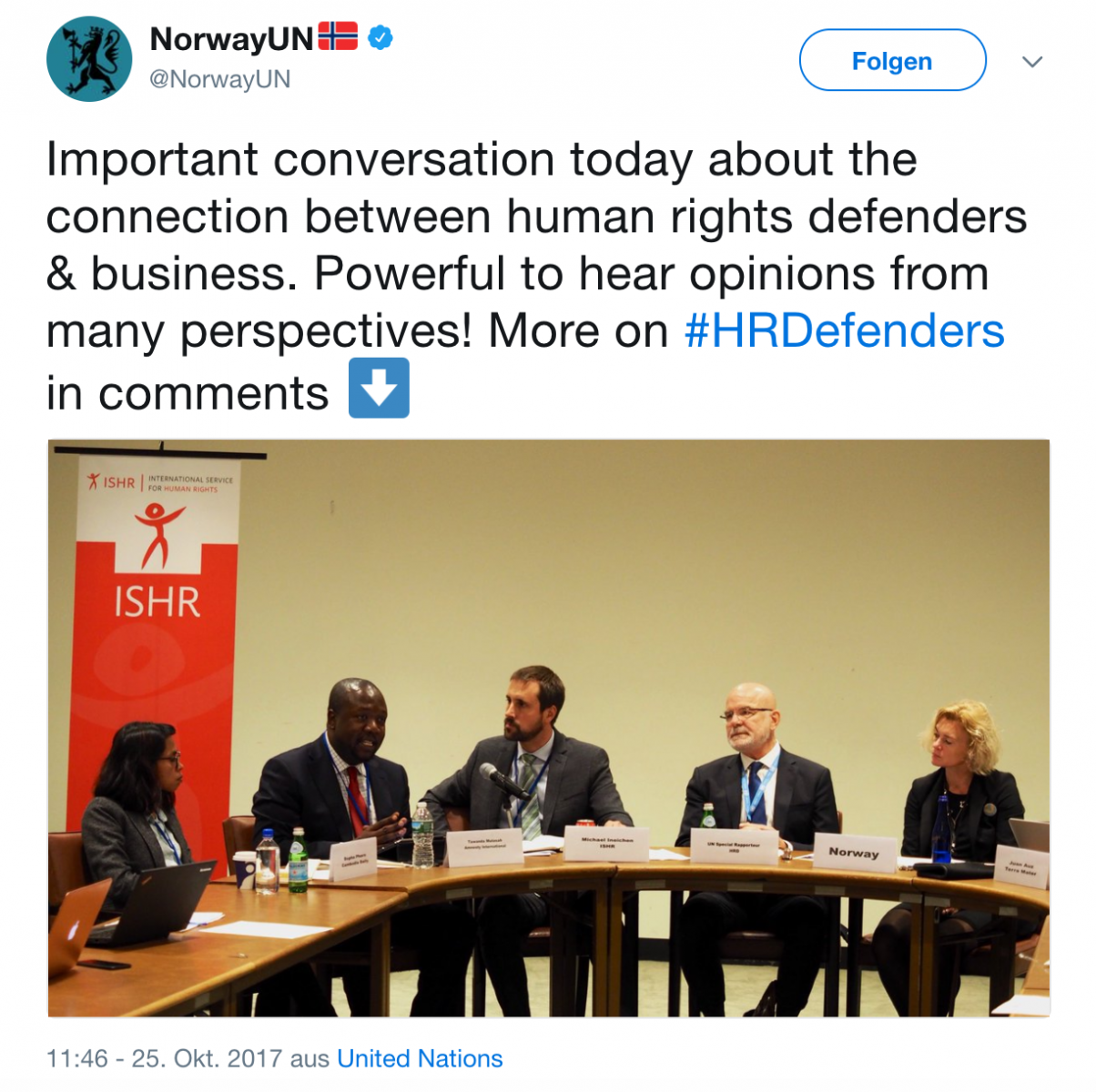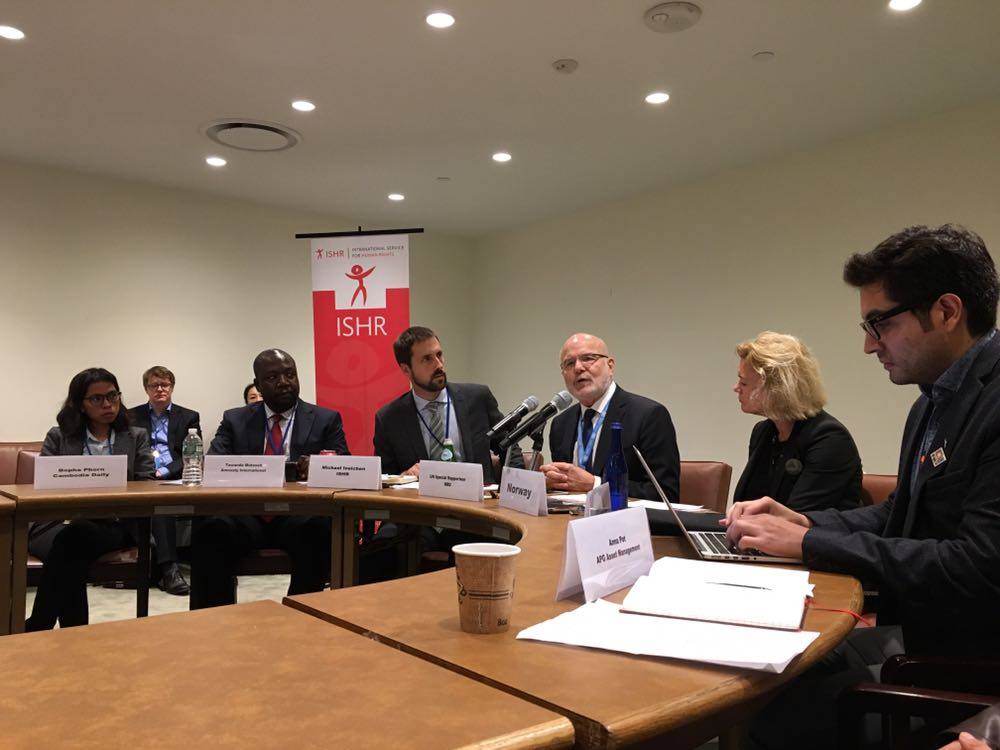Michel Forst, Special Rapporteur on the situation of human rights defenders, in the presentation of his annual report to the Third Committee said attacks and threats against defenders working on the impacts of business practices on human rights, are increasing and widespread. Key points from his latest report can be found here.
‘This is not random violence,’ said Forst to the assembled State delegates. ‘These are deliberate attacks meant to silence those who speak truth to power.’ This power resides in the State and, at times, in the hands of businesses and investors. Forst called on business enterprises and financial institutions to perform due diligence in cooperation with civil society and human rights defenders, and to assess their role, or potential role, in impacting human rights. At the same time, he called on countries to adopt legal frameworks that oblige businesses to carry out their responsibilities.
‘It is not necessary to choose between an operational environment for businesses and a safe enabling environment for human rights defenders. Both are intertwined and benefit from each other,’ continued Forst.
The Special Rapporteur highlighted advances in regard to businesses taking responsibility for their human rights impact, citing corporations like adidas that have developed guidelines on better respecting human rights defenders.
Interactive dialogues with the Special Rapporteur
Whilst several States, including Norway, Spain, Canada, Denmark, and Ireland, welcomed the findings of the Special Rapporteur’s report and expressed support for his mandate, Forst also came in for some criticism. That criticism focused on questioning the mandate-holder’s integrity. Russia questioned the need for the mandate altogether.
‘Questioning the mandate itself, or implying that the Special Rapporteur is acting outside his mandate, is an increasingly common tactic,’ said Michael Ineichen, ISHR’s programme manager – corporate accountability – and Human Rights Council advocacy director. ‘Instead of grappling with the content of the report, they dismiss the messenger.’
The upcoming year will be a significant one for the Special Rapporteur. 2018 will mark the 20th anniversary of the Declaration on Human Rights Defenders. The Special Rapporteur hopes to undertake visits to Peru, Honduras, and the Democratic Republic of the Congo in 2018.
 Side event on business and human rights defenders
Side event on business and human rights defenders
A side event was held following the dialogue, hosted by ISHR and Amnesty International with the support of the Permanent Mission of Norway, and other NGO partners. The Deputy Permanent Representative for Norway, May-Elin Stener, stressed how the UN’s Sustainable Development Goals would not be met without civil society participation in their monitoring and implementation.
During that discussion, the Special Rapporteur said he had started engaging with companies directly, having received communications from defenders about killings allegedly carried out by, or with the complicity of, companies. Forst said he was struck by the high level of response from companies and the substance of their responses.
‘The response of companies to inquiries by a UN expert is a good sign that they acknowledge a UN role in holding them to account for their human rights record,’ said Ineichen.
Stakeholder perspectives
Ecuadorian human rights defender Juan Auz, co-founder of Terra Mater, spoke of his previous organisation, Pachamama, which was controversially closed as a result of a Presidential Decree in 2013. He noted that following the closure, companies whose operations Pachamama had objected to were granted concessions to operate. The State also benefitted from the closure of the organisation, arguing that civil society had no role to play in the development of public policy.
Journalist Bopha Phorn, Editor-At-Large of the Cambodia Daily, spoke of the huge risks faced by those covering stories on labour and land rights, and land grabbing. Bopha was shot as she covered a story on illegal logging. She urged investors to visit companies on the ground and be questioning of the conditions they see and what they are told.
Expressing the point of view of investors, Anna Pot, from APG Asset Management, said how important it was to find companies that are sustainable in the long term. What was missing was good, disaggregated data on company performance, to allow investors to make better decisions.
Contact: Michael Ineichen, [email protected].
Photo: ISHR



 Side event on business and human rights defenders
Side event on business and human rights defenders
